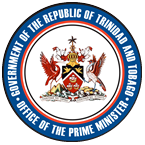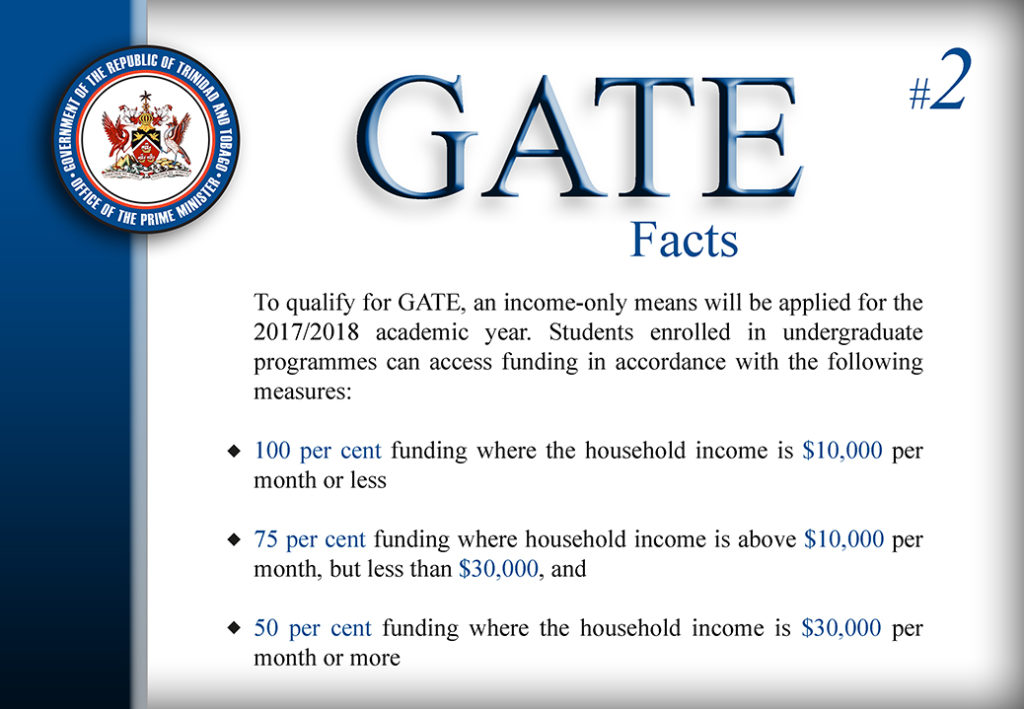- 25 JUL 2017
Here’s how Changes to GATE Affect You
Given the country’s current budgetary constraints, adjustments have been made to the Government Assistance Tuition Expenses (GATE) Programme. A special Task Force submitted a report to Cabinet detailing recommended changes last year, which were carefully considered by Cabinet and certain decisions were taken.
Effective from the academic year 2017/2018 and beyond, a means test will be used to determine access to the GATE Programme. The means-test system will be fully integrated into the GATE eService to ensure efficiency and increased responsiveness. Students who do not wish to apply for means testing will be required to pay 50 per cent of their tuition fees.
Students enrolled in undergraduate programmes can access funding in accordance with the following measures:
- 100 per cent funding where the household income is $10,000 per month or less;
- 75 per cent funding where the household income is above $10,000 per month, but less than $30,000, and
- 50 per cent funding where the household income is $30,000 per month or more.
Sanctions, such as withdrawal and reimbursement of GATE funding and debarment from access to the GATE Programme, will be introduced as a deterrent for students who are found to have submitted false information on their means test.
Funding for postgraduate study is only available to students whose programmes are in alignment with the country’s developmental needs. Funding will be provided in accordance with the following measures:
- Where the household income is $30,000 per month or more students will be eligible for 25 per cent of tuition fees
- Where household income is less than 30,000 per month students will be eligible for 50 per cent tuition fees
The following changes were made effective August 2016:
- Students will be funded for one undergraduate and one postgraduate programme; continuing students allowed to complete previously approved undergraduate programmes;
- The loan ceiling for students at local institutions rose to $35,000 annually. Ceiling for students at regional institutions remains at $75,000 annually;
- Persons over the age of 50 are no longer eligible for GATE funding. Students over the age of 50 already enrolled in undergraduate programmes will be granted funding to complete their programmes;
- Government discontinued funding for new students in the medical programmes at the St. George’s University, Grenada.
The following changes will come into effect August 2017:
- Funding for postgraduate degrees available to students whose programmes are in alignment with the country’s developmental needs;
- Only institutions and programmes accredited by the Accreditation Council of Trinidad and Tobago receive funding;
- Technical and Vocational Education and Training programmes for level III and IV to receive funding;
- Students enrolled in non-medical programmes at regional campuses of the University of the West Indies that are offered at UWI, St. Augustine Campus, will receive funding to the equivalent level of funding at the St. Augustine Campus.
These changes have been made to realign GATE to the country’s economic circumstances and its development plans.






